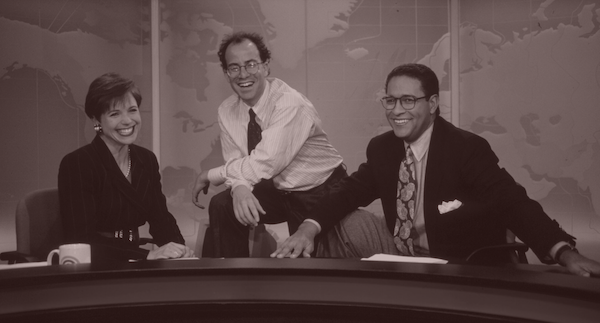|
Welcome back to Dry Powder, I'm William D. Cohan.
Thanks as always for following my work here at Puck. As a reminder, you're receiving the free version of Dry Powder at .
In today's email: A look back at the origins of Jeff Zucker's remarkable rise at NBCU, how he became a casualty of the Comcast acquisition, and what his past maneuvering could portend for his next career moves...
Media and business gossips are already speculating about Jeff Zucker’s next move once the CNN imbroglio dies down. Zucker’s tenure atop NBCU may provide some clues. Amid all the extraordinary sturm und drang surrounding last week’s unceremonious defenestration of Jeff Zucker, it’s useful to remember that he has long been a source of fascination, envy, and schadenfreude. In 1993, nearly seven years after they graduated together from Harvard, my friend Michael Hirschorn, now an Emmy-award winning film producer, wrote a lengthy feature in Esquire, Zuck and Me, about his former classmate, then the 28-year-old executive producer of Today. “Jeff Zucker is the most successful person I know,” Hirschorn wrote. “...He looms as a living infomercial for what pure will to power will score you in the modern world.”
Nearly eight years later, writing in New York, Michael Wolff also weighed in on the topic of Zucker, then 35 and the survivor, by then, of two bouts of cancer. Zucker had just been named to head up the entertainment side of NBC, in Los Angeles, after his highly profitable stint running Today in New York. (Wolff estimated that the program made $500 million a year in profit for NBC.) In his inimitable way, Wolff described Zucker as “the boy genius of post-decline TV,” as “indisputably the most successful man in television,” and possibly “the only successful man in television.” He also insinuated that he was a detail-loving micro-manager whose talent and managerial skills engendered a nearly head-spinning loyalty among his colleagues.
In 2005, another Harvard alum (and another friend), Kurt Andersen, took his turn trying to figure out Zucker. By then, Zucker had been promoted to be the president of NBC and was angling to succeed the legendary Bob Wright as the C.E.O. of NBCUniversal. (GE had added a bunch of Universal assets to NBC in 2004.) Forget a promotion: Andersen wondered how Zucker could survive since NBC had fallen to fourth place from first in the prime-time ratings game, and was losing money hand over fist...
FOUR STORIES WE'RE TALKING ABOUT Now that Zucker is out, most people seem to think that Cuomo has lost his leverage. But the legal drama with CNN isn't so simple. MATTHEW BELLONI With Republicans expected to retake the House in November, could Pelosi’s congressional seat become a family dynasty? TEDDY SCHLEIFER Zuckerberg is diverting billions of dollars into the metaverse, even as Facebook’s core business begins to sour. Is it too late to turn back? ALEX KANTROWITZ The inside conversation on Wall Street about Warner’s CNN headache, AMC’s meme-bond offering, and Dimon’s dream job. WILLIAM D. COHAN
|
-
Join Puck
Directly Supporting Authors
A new economic model in which writers are also partners in the business.
Personalized Subscriptions
Customize your settings to receive the newsletters you want from the authors you follow.
Stay in the Know
Connect directly with Puck talent through email and exclusive events.











